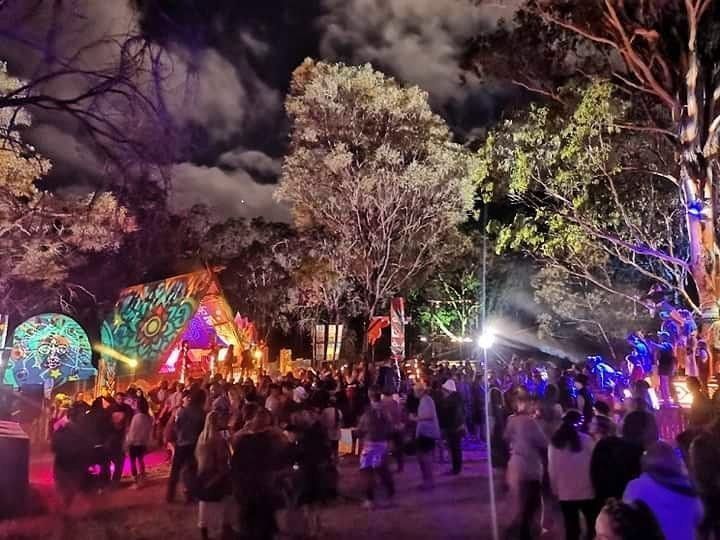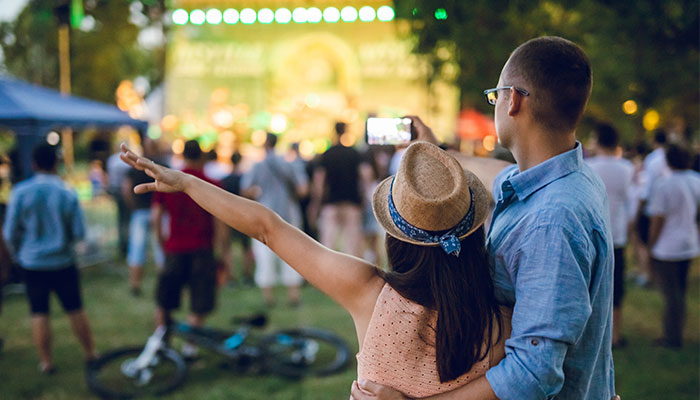Since September 2018, five young people have died of drug overdoses at music festivals in NSW. Two more, a 24 year-old man and 22 year-old woman, are suspected to have died due to an overdose this Easter at the Rabbit Eats Lettuce Festival in Queensland. But will these deaths deter others from taking drugs at festivals?
“Unfortunately not,” says Professor Rapee. “The immediate reason is because taking drugs is fun - and many young and older people enjoy the feelings and benefits that drugs give. It’s pleasurable.”

Tragedy strikes again: the bodies of a 24-year-old man and a 22-year-old woman have been found inside a tent at a music festival on Queensland's Southern Downs.
Another reason is context: drugs help many young people relax and fit in to a social occasion.
“Many of us go to a party and reach for a drink and that’s because it’s what you do at parties,” he says. “In the same way, harder drug use has become contextually linked with festivals and comes up heavily in young people’s consciousness when they think of going to a festival.”
Perceived pressure is strongest around adolescence and then starts to decrease in early adulthood
Peer pressure is a significant factor as well, Professor Rapee says, even though peer pressure is largely a perceived phenomenon. Their friends aren’t actually standing over them and forcing them to take drugs.
FOMO is a powerful motivator
“They take drugs because they don’t want to miss out, and they think they won’t fit into the group if they don’t,” he says.
“A lot of research shows that everyone is susceptible to fitting in with their peers, but the perceived pressure is strongest around adolescence, and then starts to decrease in early adulthood and even more so later in life.”
So what deters others? They may have moral or religious reasons and maybe are more socially conservative, conforming to what their parents and society expects of them, Professor Rapee says.
“While some people use drugs to cope because they are socially anxious, others are anxious about the effects of drugs and are too frightened to use them,” he says.
Research shows most young people are as aware about the dangers and risks of drug use as older adults, yet some chose to ignore these risks. “The question is: why?” Professor Rapee says.
Car crashes pose more risk
The answer goes back to peer pressure and also an element of personal testing. Young people experiment with lots of risks, to work out who they are, what are their limits, values and abilities.

Harm minimisation: Professor Rapee says trying to stop young poeple taking drugs hasn't worked.
“Also, while not exactly feeling invincible, at the emotive level many young people have less of a concept of death; they are less cognisant and conscious of their mortality than older people,” he says.
And while the issue of drugs is at the forefront of public attention, young people face more significant dangers. They are more likely to die by suicide (the leading cause of death for Australians aged 15-44, according to the Australian Bureau of Statistics) and car crashes (78 people aged 15- 25 died in car crashes in NSW in 2018, according to Transport for NSW).
Instead of trying to stop young people taking drugs, which hasn’t been working very well, Professor Rapee suggests parents, the police and lawmakers try to minimise harm - a major argument for festival pill testing.
“A large proportion of overseas trials of pill testing have shown that when you have someone standing in front of you, and especially someone in a white coat who has just tested your pills, explaining the risks of the drug, you are actually more likely to throw them away,” he says.



